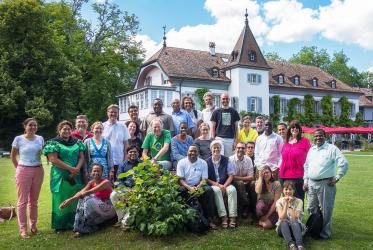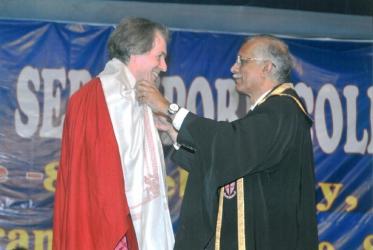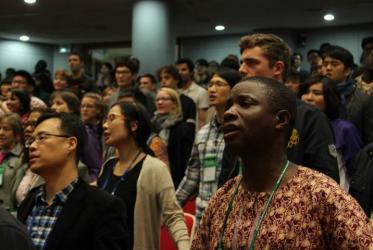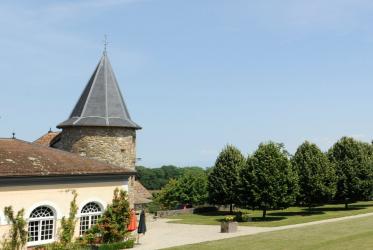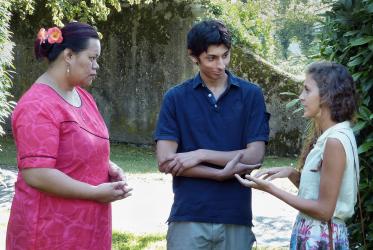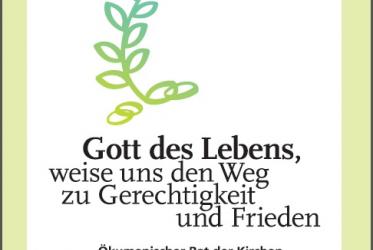Displaying 601 - 620 of 721
01 July 2014
After Busan: A pilgrimage of justice and peace
29 January 2014
Churches commemorate Week of Prayer for Christian Unity
24 January 2014
Theological education initiative begins in Seoul
28 October 2013
WCC assembly ready to open, watch from afar
25 October 2013
Former students share their memories of the Ecumenical Institute
18 October 2013
Paul Isaak appointed as director of elections in Namibia
23 September 2013
Global survey documents trends in theological education
19 September 2013
Youth build multi-faith community in Bossey
28 August 2013
